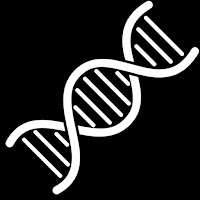But accroding to a research study, getting back what was lost is likely easier than most people realize. For those who are still struggling to get back on track with their exercise routine, there is an encouraging news. A new research from the University of Arkansas indicates that prior training of muscles can accelerate muscle growth and response even after extended idleness. But how is it possible?
Memory of your muscles:
The muscles, and specifically the DNA of the muscle cells themselves, retained a kind of cellular memory of previous adaptation to exercise. More technically stated, "Muscle nuclei have a methylation epi-memory of prior training that may augment muscle adaptability to retraining.
Anecdotally most gym rats know that muscle acquired earlier in life is easier to reacquire than new muscle. Put another way, someone who put on 10 pounds of muscle in college, then lost it when their kids were born, likely finds it much easier to put that muscle back on than someone who never had it to begin with. Murach is eager to learn more about what is happening on the molecular level.
Research Study:
Kevin Murach, an assistant professor in the Department of Health, Human Performance, and Recreation and his team studied the skeletal muscles of mice. They followed a procedure of training and detraining.These mice were trained on a progressively weighted wheel over a period of 8 weeks to build muscles, then taken off the wheel for 12 weeks, or "detrained." Then a four-week period of retraining occured. These mice were then compared against a control group that was only trained for four weeks. Findings indicated that the previously trained cohort saw accelerated gains in muscle growth after retraining when compared to the control group, and that specific epigenetic changes to DNA methylation persisted after the original training.
Epigenetics is the idea of changing how a cell responds to stimuli (i.e., alters the expression of genes) without altering the genetic code. Cells can respond to things based on DNA without changing the DNA, just changing how it's accessed. You can change the cellular response without changing the genetic code. In short, when it comes to exercise, a kind of rebound response may be stored in muscle cells at the epigenetic level, which is what his study points to.
So if your exercise routine was disrupted by COVID-19, don't take tension. Your cells have a great memory of your strength and gym routines. They will easily regain those muscles with some normal trainings.
References:
- Yuan Wen, Cory M Dungan, C Brooks Mobley, Taylor Valentino, Ferdinand von Walden, Kevin A Murach. Nucleus Type-Specific DNA Methylomics Reveals Epigenetic 'Memory' of Prior Adaptation in Skeletal Muscle. Function, 2021; DOI: 10.1093/function/zqab038
- Materials provided by University of Arkansas.




